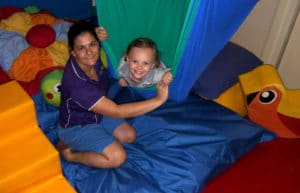Psychologist Darwin
Psychology & Counselling
Therapeutic Models for Counselling
- Relationship based counselling
- ICT (Integrated Couples Therapy coming from an ACT base)
- Psychodynamic/Object Relations
- Attachment
- Transactional Analysis
- CBT/RET
- Trauma Informed Therapy
- Compassionate Frame Therapy

Relationship-based Counselling
Relationship-based counselling offers our clients the chance to undergo counselling as a couple or family. If you want to work through conflicts and problems in your relationships and learn how to communicate in healthy and constructive ways with your partner and other members of your family, our relationship-based counselling may be right for you. We can help people to enjoy healthier, happier relationships with their loved ones by promoting respect, boundaries, empathy, and communication.
ICT
ICT stands for Integrated Couples Therapy, a type of therapy for couples with a strong foundation in evidence and research. We incorporate elements of ACT, or Acceptance and Commitment Therapy, to help couples to understand and embrace their own thoughts and feelings rather than fighting against them. By working together, our ICT therapy can help couples to accept each other’s perspectives and move beyond past issues. Our ICT therapy may help you to understand your partner’s thoughts and feelings better as well as your own.
Psychodynamic/Object Relations
Object relations is an area of psychoanalytic theory that posits that humans are primarily motivated by the need to form relationships. Our psychodynamic and object relations therapy can help you to uncover early traumas and challenges that may still affect your relationships today. We can help our patients to understand how early experiences may have impacted their perception and attitudes toward the self and others and how these can be adjusted to improve relationships and functioning as an adult.
Attachment
Attachment counselling is a type of therapy that focuses on how your attachment style might affect other areas of your life. Our attachment counsellors can work with you to help you understand your own attachment style and use your new knowledge to improve symptoms of relationship worries, anxiety and depression as well as substance abuse and PTSD. Attachment therapists can help you to understand how your early relationships with caregivers impact your life and relationships as an adult.
Transactional Analysis
Transactional analysis is a type of talking therapy that helps people to work on personal growth and development. TA therapy uses three key ego states: parent, adult, and child to help people to find creative solutions to their day-to-day problems and challenges. With our help, your TA therapy can help you to overcome your fears, tackle your problems head-on, and improve your relationships with others.
CBT/RET
CBT, or cognitive behaviour therapy, helps people to overcome common mental health challenges including anxiety and depression by changing unhealthy ways of thinking and feeling. CBT therapists help their clients to develop strategies to avoid unhealthy thought patterns and improve their quality of life. Our CBT therapists practice RET, or Rational Emotive Behavioral Theory, to help our patients to alter their underlying beliefs about themselves and foster self-confidence and independence.
Trauma-informed Therapy
Trauma-informed therapy is suited to patients with significant past trauma or PTSD. Our trauma-informed therapists can work with patients to understand how past trauma might affect existing thought patterns and relationships and how trauma might interact with other mental health conditions. Trauma-informed therapy places a strong focus on ensuring that patients feel safe during therapy sessions and building mutual trust between patient and therapist to work towards long-lasting change.
Compassionate Frame Therapy
Compassionate frame therapy, or CFT, is a type of psychotherapy that helps patients to understand how their experiences in the past may inform their present attitudes and relationships. Our therapists can use CFT to help you to improve negative behaviours and minimise negative thoughts to promote better mental health and more positive relationships with others.

Counsellors in Darwin
Counselling works in a client-centred way. Whilst many counsellors have training and experience in a range of therapeutic models, it is important that the model fits to the client and what it is they want to address in their counselling sessions. A counsellor will always discuss with a client what they would like the focus of their sessions to be and adapt their approach accordingly.
Therapeutic Models for Psychology
- Non-directive Play Therapy
- Cognitive Behaviour Therapy
- Acceptance & Commitment Therapy
- Sensorimotor Psychotherapy
- DIR Floortime ®
- Equine Psychotherapy


Child Psychologist in Darwin
Our psychologists have specialty training to work with children with a range of developmental difficulties, trauma and disorders. Understanding the unique challenges faced by children in today’s fast-paced world, our team is equipped with the latest therapeutic techniques and interventions tailored specifically for the younger age group. From addressing behavioural issues to helping children cope with emotional disturbances, our child psychologists in Darwin are dedicated to fostering a nurturing and supportive environment for every child.
The Importance of Early Intervention
Early intervention plays a crucial role in addressing and mitigating potential psychological challenges in children. Recognising the signs and seeking professional help can pave the way for better coping mechanisms, resilience and overall well-being. Our team emphasises the importance of early detection and intervention, ensuring that children receive the right support at the right time.
A Holistic Approach to Child Psychology
At Stepping Stones Therapy, we believe in a holistic approach to child psychology. This means not only addressing the immediate concerns but also understanding the broader context of a child’s life, including their family dynamics, school environment and social interactions. By considering all these factors, our psychologists can provide comprehensive care that addresses the root causes of issues and promotes long-term positive outcomes.
The Transformative Benefits of Counselling
In today’s fast-paced world, mental well-being is as crucial as physical health. Counselling offers a haven, a place where individuals can explore their thoughts, feelings and experiences without judgment. The transformative journey through counselling can lead to profound personal growth, self-awareness and healing. Here are some of the key benefits of seeking counselling:
- Self-awareness and Personal Growth: One of the primary benefits of counselling is the increased understanding of oneself. Through guided discussions, individuals can uncover patterns in their thoughts, behaviours and reactions. This newfound self-awareness can lead to personal growth, allowing individuals to make more informed decisions about their lives.
- Improved Relationships: Counselling can provide tools and strategies to improve communication, understanding and empathy in relationships. Whether it’s a romantic partnership, family dynamics, or friendships, therapy can pave the way for healthier and more fulfilling connections.
- Coping Mechanisms for Stress and Anxiety: In a world filled with uncertainties, stress and anxiety have become common adversaries. Counselling equips individuals with effective coping mechanisms, helping them navigate life’s challenges with resilience and poise.
- Healing from Trauma: Past traumas, whether recent or from childhood, can cast long shadows over one’s life. Counselling provides a safe space to process these traumas, helping individuals find closure and move forward.
- Enhanced Problem-Solving Skills: Through counselling, individuals can develop better problem-solving skills, learning to approach challenges with a clear mind and a structured strategy.
- Boosted Self-esteem and Confidence: A positive self-image is foundational for success in various life arenas. Counselling can help individuals confront and overcome deep-seated insecurities, leading to enhanced self-esteem and confidence.
- Emotional Regulation: Managing emotions, especially intense ones like anger or sadness, can be challenging. Counselling offers techniques to understand and regulate these emotions effectively.
- Clarity and Direction: At times, life can seem directionless and overwhelming. Counselling can provide clarity, helping individuals understand their goals, desires and aspirations.
- Support During Major Life Transitions: Major life changes, be it career shifts, relocation, or personal losses, can be daunting. A counsellor can offer support, guidance and a listening ear during these transitional phases.
- Prevention: Lastly, counselling isn’t just for addressing existing issues. It’s also a proactive approach to mental well-being, helping individuals recognise potential challenges and address them before they escalate.
Counselling is an investment in one’s mental and emotional well-being, leading to a life of fulfilment, understanding and joy. Whether you’re facing a specific challenge or seeking general guidance, the benefits of counselling are manifold, offering a path to a brighter, more balanced future.
FAQs
What is counselling?
Counselling is a talking therapy that addresses emotional issues.
Who would benefit from counselling?
People of any age need a safe environment to discuss their issues, including couples and families.
What happens during counselling?
You are usually free to discuss the issues you want to talk about with a supportive counsellor.
How can a psychologist help my child?
A psychologist can help your child work through trauma and a range of psychological disorders.
Psychology & Counselling Blogs
Read the articles below to learn more about anxiety, learning disorders, traumas and psychological disorders in children and adults and how a psychologist or counsellor might be able to help.

5 Common Myths In Child Psychology Debunked
Understanding child psychology can be a labyrinth of facts and fiction and separating myth from reality is essential for fostering healthy development in children. In

Child Psychology: How To Know Your Child Better
Have you ever wondered what goes on in your child’s mind? Understanding the psychological world of children can be a complex yet fascinating journey. With

What is Behaviour Support?
Behaviour support, a crucial party of therapy that aims to understand and address challenging behaviours. These behaviours often arise from unmet needs, communication barriers or

Navigating Your Path: A Guide to Choosing a Psychologist
Life can sometimes feel like a challenging puzzle. In such situations, a psychologist can provide invaluable assistance, helping you piece together the bigger picture. But

How Is Autism Level 1, 2 And 3 Diagnosed?
Autism is a lifelong developmental disability that impacts how people perceive the world and interact with others. Characterised by difficulties in social interaction and verbal

How To Help A Child With Behaviour Problems
Behavioural problems in children are common, however if you’re noticing increased problematic behaviour in your child, you may be wondering what’s causing this and how

Child Psychologist Barbara Kapser on How to know if your child needs professional help
As parents, sometimes it can be tempting to look at your beautiful child and wistfully say to yourselves, “Aah, kids have it so easy.” You

Darwin Child Psychologist Barbara Kapser Gives Back To The Community Via Mentoring Partnerships
One way for professional leaders to foster a greater sense of purpose is to give back to the community via mentoring programmes, which help those

Are You Looking For A Specialist Child Psychologist?
Parents are typically intuitive when it comes to assessing their own family’s mental health, abilities and cognitive awareness, meaning that, as a parent, you usually

What Red Flags Are Showing Your Child Needs Psychological Intervention?
If you’ve found yourself losing sleep at night and searching the internet wondering whether or not what your child is currently experiencing is normal, it’s
Our full range of services in Darwin & across the NT include:
Speech & Language Therapy
We provide a range of services to help recognise and treat speech delays and other issues for children and adolescents alike.
Occupational Therapy
- DIR Floortime
- Astronaut Program
- Alert Program
- Therapeutic Listening Program
- Brain Gym
- Sensory Integration Principles
- Aquatic Therapy
Psychology & Counselling
We have a team of trained psychologists who will help with everything from couples and relationship counselling, anxiety and depression to trauma and post traumatic stress.
Expressive Arts Psychotherapy
We’ll help your child through play therapy, which implements the use of play and toys to help children process and understand their world.
Speech & Language Therapy
We provide a range of services to help recognise and treat speech delays and other issues for children and adolescents alike.
Occupational Therapy Models
- DIR Floortime
- Astronaut Program
- Alert Program
- Therapeutic Listening Program
- Brain Gym
- Sensory Integration Principles
- Aquatic Therapy
Psychological Services
We have a team of trained psychologists who will help with everything from anxiety and depression to trauma and post traumatic stress.
Expressive Arts Psychotherapy
We’ll help your child through play therapy, which implements the use of play and toys to help children process and understand their world.
Workshops & Support Groups
- Hanen
- Key Word Signing
- 123 Magic and Emotion Coaching
- Circle of Security Parenting Program
- Meltdowns vs Behaviour
- Amazing Articulation
- Getting to know you
- Self-Care Skills and Building independence
- How to be a Playmate
- Mealtimes Matter
- Beyond Words
- Developing Language through Play
- Sensory Processing? What is it?







